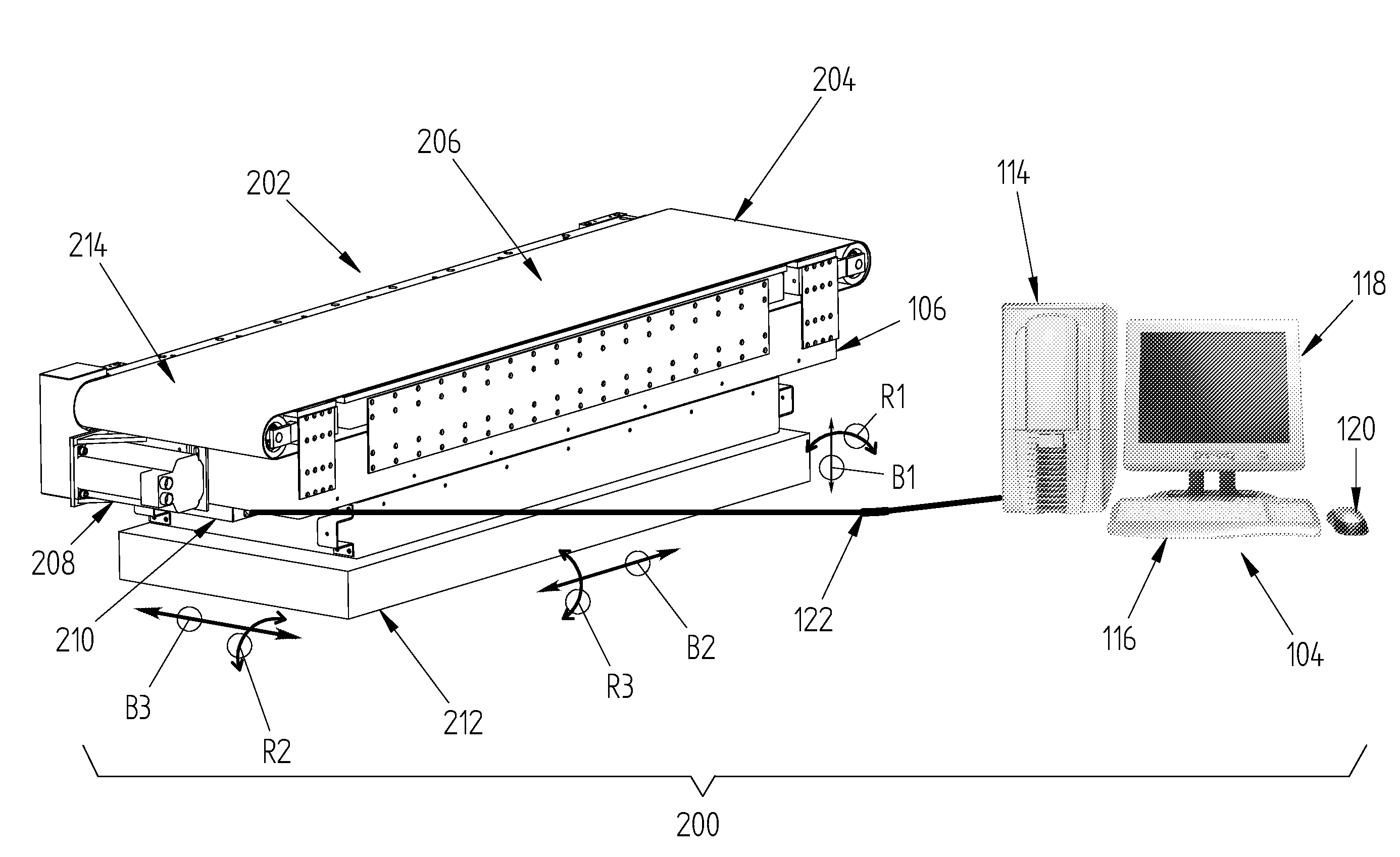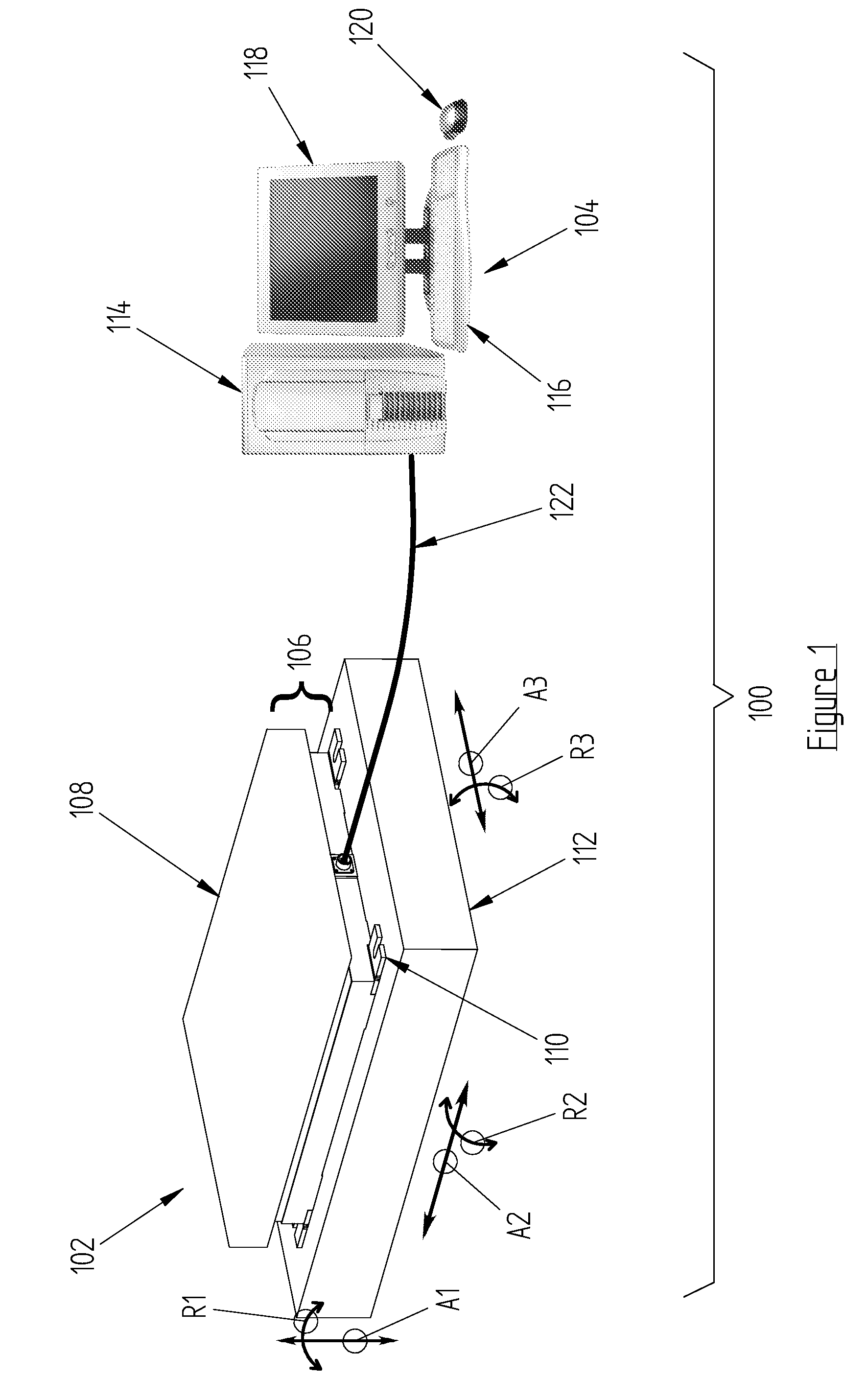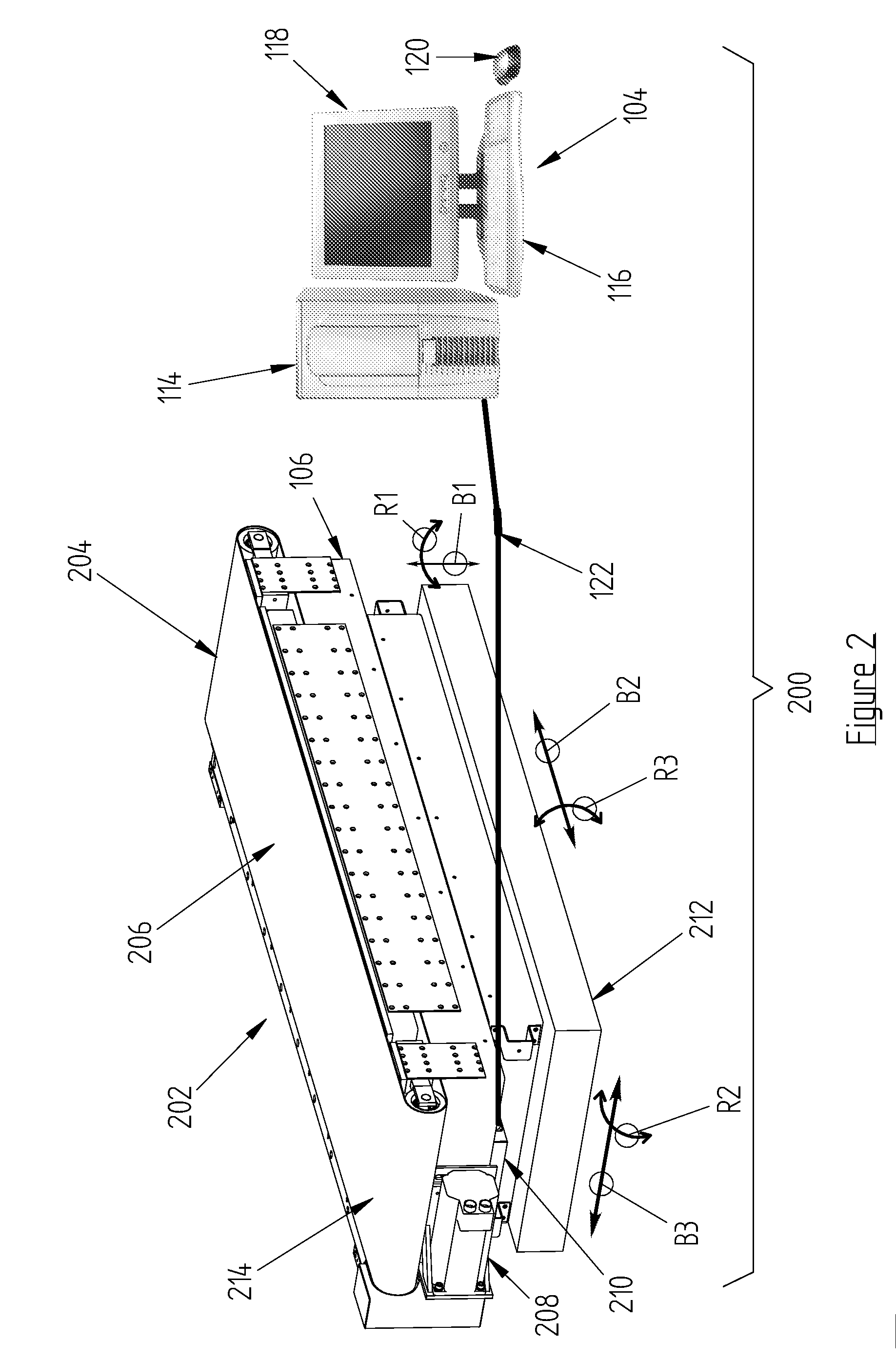Force and/or Motion Measurement System Having Inertial Compensation and Method Thereof
- Summary
- Abstract
- Description
- Claims
- Application Information
AI Technical Summary
Benefits of technology
Problems solved by technology
Method used
Image
Examples
first embodiment
[0066]Referring again to FIG. 1, it can be seen that the force measurement assembly 102 according to the invention, includes a force plate or platform 106 that is attached to the top of a motion base 112 via a plurality of mounting brackets 110. The force plate or platform 106 has a top surface 108 that is configured to receive at least one portion of a body of a subject. In a preferred embodiment, a subject stands in an upright position atop the force plate 106 and the feet of the subject are placed on its top surface 108. In FIG. 1, the arrows A1, A2, A3 disposed adjacent to the motion base 112 schematically depict the displaceable nature of the force measurement assembly 102, which is effectuated by the motion base 112. Moreover, the curved arrows R1, R2, R3 in FIG. 1 schematically illustrate the ability of the force measurement assembly 102 to be rotated about a plurality of different axes, the rotational movement of the force measurement assembly 102 is also generated by the mo...
second embodiment
[0069]As illustrated in FIG. 2, the force measurement assembly 202 according to the invention includes a treadmill 204 that is attached to the top of a motion base 212. The treadmill 204 has a top surface 206 that is configured to receive at least one portion of a body of a subject. In a preferred embodiment, a subject walks or runs in an upright position atop the treadmill 204 with the feet of the subject contacting the top surface 206 of the treadmill 204. The belt 214 of the treadmill 204 is rotated by an electric actuator assembly 208, which generally comprises an electric motor. The electrical cable 122 is operatively coupled to a load output device 210, which is at one end of the treadmill 204, and beneath the rotating belt 214. While it is not readily visible in FIG. 2 due to its location, the force measurement assembly 202, like the force measurement assembly 102, includes a force plate 106 with a plurality of force transducers disposed below the rotating belt 214 of the tre...
PUM
 Login to View More
Login to View More Abstract
Description
Claims
Application Information
 Login to View More
Login to View More - R&D
- Intellectual Property
- Life Sciences
- Materials
- Tech Scout
- Unparalleled Data Quality
- Higher Quality Content
- 60% Fewer Hallucinations
Browse by: Latest US Patents, China's latest patents, Technical Efficacy Thesaurus, Application Domain, Technology Topic, Popular Technical Reports.
© 2025 PatSnap. All rights reserved.Legal|Privacy policy|Modern Slavery Act Transparency Statement|Sitemap|About US| Contact US: help@patsnap.com



